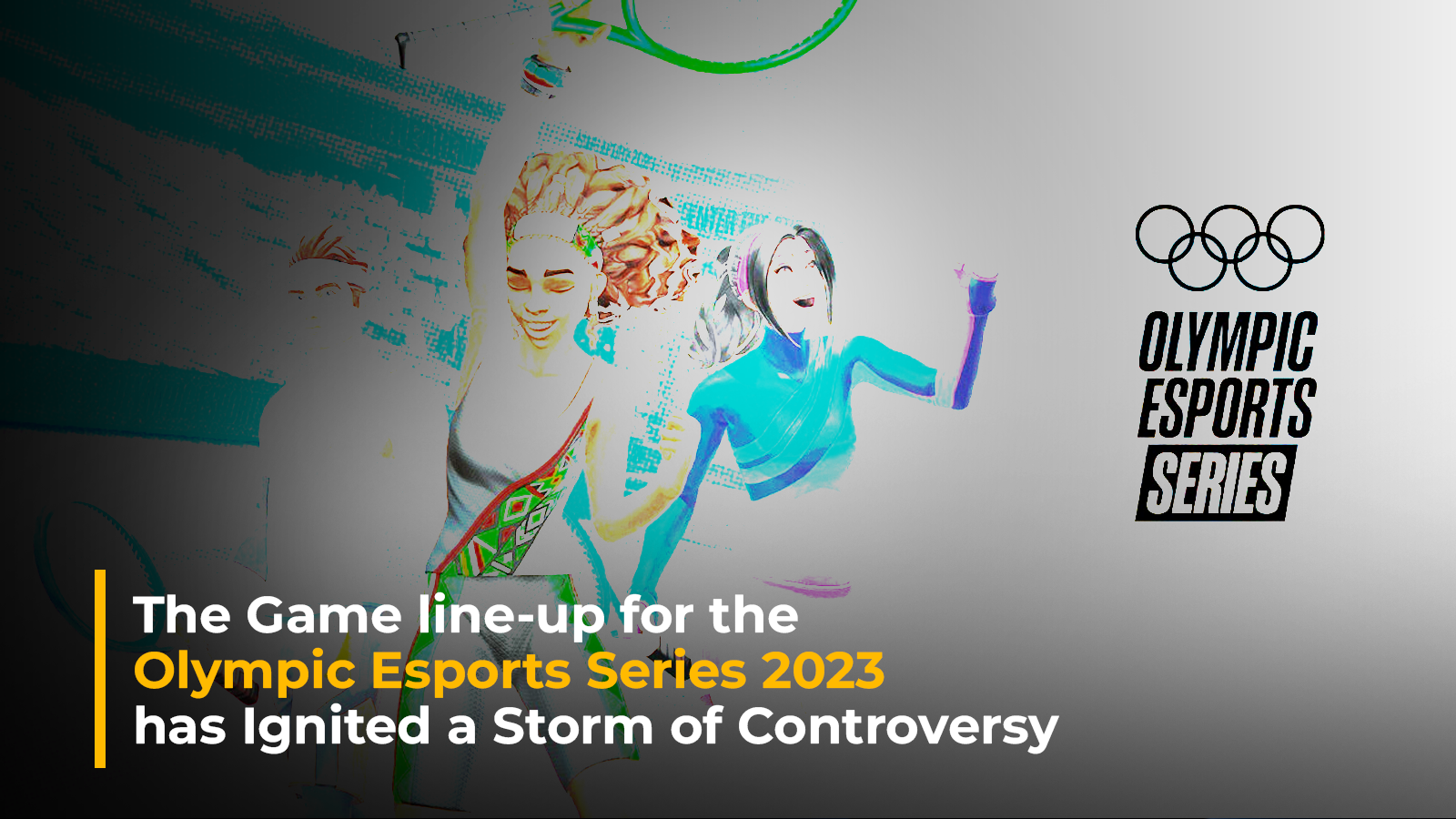- Raunak Bose
- May 19, 2023
- Comments (0)
Olympic Esports Series 2023 Games Line-Up Sparks Community Controversy and Debate
The announcement of the game line-up for the Olympic Esports Series 2023 has ignited a storm of controversy and debate within the gaming community. With expectations high for the inclusion of popular esports titles, the chosen games have left many questioning the decision-making process and expressing their disappointment. This article delves into the community’s reaction to the line-up and explores the implications of the IOC’s choices.
Table of Contents
ToggleA Disconnected Line-Up
The IOC’s game selection for the Olympic Esports Series 2023 has left the esports community feeling disconnected from the decision-making process. The absence of prominent titles like Counter-Strike, DOTA2, and League of Legends, which have established themselves as pillars of competitive esports, has raised concerns about the selection criteria and the committee’s understanding of the global esports landscape.
Mimicking Real-Life Sports
One possible rationale behind the chosen games is their alignment with traditional Olympic sports. Games like Tic Tac Bow for archery, WBSC eBaseball: Power Pros for baseball, and Virtual Regatta for sailing seem to mirror their real-life counterparts. While this may be an attempt to bridge the gap between physical sports and esports, it has left many esports enthusiasts feeling disappointed and disconnected from the true spirit of esports competition.
Accessibility and Audience Appeal
Another perspective is that the IOC aimed to prioritize accessibility and audience appeal with their game selection. By featuring games that are easy to understand and engage with, they may have intended to attract a broader audience to the Olympic Esports Series. However, this approach has disregarded the established competitive ecosystems and the passionate communities surrounding popular esports titles, which already possess a dedicated fan base.
Missed Opportunities
The absence of core esports titles in the Olympic Esports Series 2023 line-up has led many to question the potential missed opportunities. Games like Counter-Strike, DOTA2, and League of Legends not only offer thrilling gameplay but also boast well-developed competitive scenes with professional players and massive fan followings. By excluding these titles, the IOC may have overlooked the chance to showcase the pinnacle of esports competition on a global stage.
A Call for Expert Consultation
Within the esports community, there is a growing sentiment that the IOC should seek consultation from individuals with deep knowledge and experience in the esports industry. By involving esports professionals, players, and community leaders, the IOC could ensure a more informed and well-rounded selection process for future Olympic Esports Series. This would help bridge the gap between the traditional sports world and the esports community.
Opportunities for Growth
While the current game line-up may have left many disappointed, it is important to recognize that the Olympic Esports Series is still in its early stages. The inclusion of virtual sports presents an opportunity for lesser-known games and emerging talent to gain recognition on a global scale. As the series progresses, there is potential for the integration of more established esports titles and the growth of a more inclusive and diverse esports landscape within the Olympic Games.
Conclusion
The Olympic Esports Series 2023 game line-up has stirred up considerable controversy and debate within the gaming community. The absence of popular esports titles has led to questions about the decision-making process and the committee’s understanding of the esports scene. While some may argue that the chosen games align with traditional Olympic sports or prioritize accessibility, it is crucial for the IOC to seek input from esports experts and enthusiasts to ensure the future development of a well-rounded and inclusive Olympic esports program. As the series evolves, there is hope that the Olympic Games will truly embrace the spirit of esports and provide a platform for both established and emerging esports talent to shine on the world stage.
